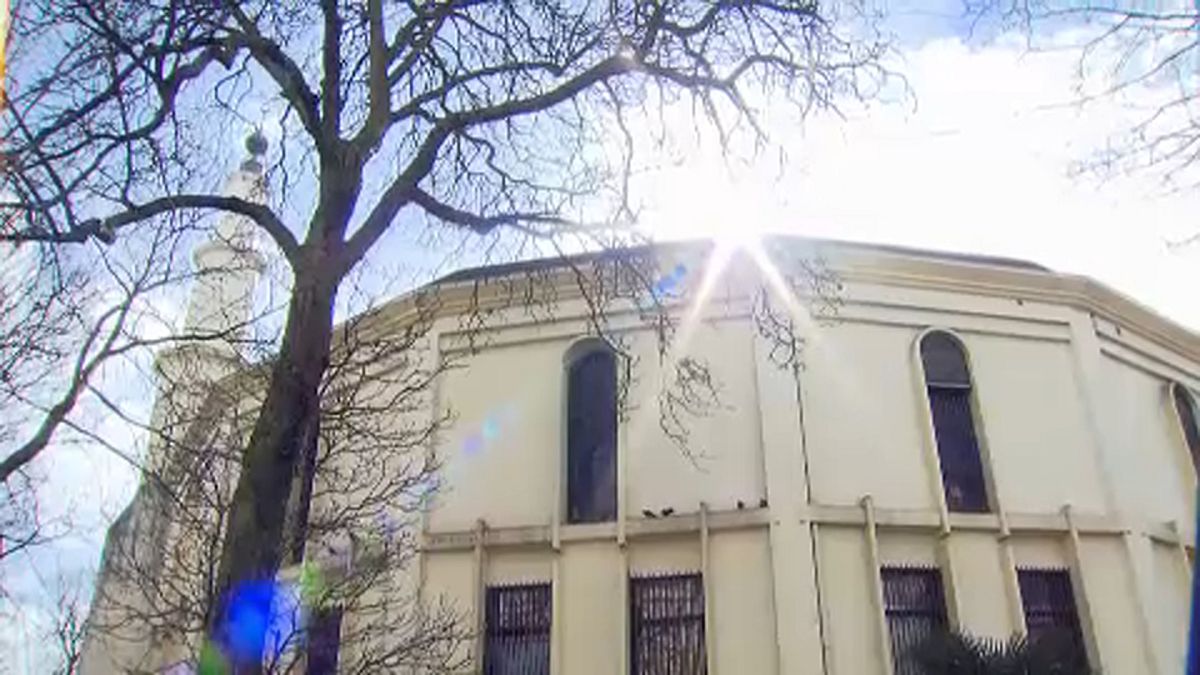As the second anniversary of the Brussels bombings is marked, Insight examines what needs to be done to try and stop future attacks
As the second anniversary of the Brussels attacks is marked, authorities continue to grapple with the roots of terrorism.
Belgium's taking back control of the Grand Mosque of Brussels, terminating a Saudi Arabia lease, amid concerns that it promotes radicalisation.
Belgian politician Georges Dallemagne was Vice President of a Commission of Inquiry into the Brussels bombings.
"There were several young people who attended this mosque and went abroad to fight with Da'esh in Syria," he told Euronews.
"They were either trained or in contact with this mosque. It must be remembered that this is not the only Salafist mosque. For example, there's the Lokman mosque in Molenbeek, which had close ties with the Grand Mosque and who was in contact with terrorists who committed attacks here on Belgian soil."
The Grand Mosque has been run by the Mecca-based Muslim World League.
It denies that it promotes violence and the Mosque director says there's no evidence of Salafist influence.
"We have no message that carries radical or Salafist ideas," said Tamer Abou El Saod.
"All the sermons are well prepared in advance during the week and are reviewed by a small committee inside the mosque. The content is revised and we discuss the theme of the subject. And in the end, we write the final version that will be used in the Friday preaching."
Riyadh, it's reported, is working to end support for mosques and religious schools abroad blamed for spreading radical ideas.
Criminologist perspective
Michaël Dantinne is a Professor of Criminology at the University of Liege and was an expert in the parliamentary inquiry into the attacks in Brussels.
Euronews: Belgium was hit on the 22nd of March 2016 by a series of deadly attacks. The government undertook a series of measures, without resorting to exceptional laws. Why?
Dantinne: Certainly, first of all, because there is a principle that we should not fight the anti-democratic gesture of terrorism with laws that violate liberties and democracy, and I think that's a good reaction.
Euronews: The Belgian government has announced that it's taking over the Grand Mosque of Brussels. This is the start of establishing a Belgian model of Islam?
Dantinne: I think the goal is primarily symbolic. Since the commission had the conviction that a Salafi Wahabi Islam was praised in this mosque, it had to say stop. It could not tolerate this, in a mosque whose walls belongs to the Belgian state.
It will be necessary to develop another form of Islam in this mosque. We've talked a lot about Islam from Belgium. It can be everything and nothing at the same time. In reality, the Islam of Belgium means certainly an Islam made by the Belgian Muslim community in agreement with Belgian society and especially in accordance with Belgian laws. But what we often forget to say is that radicalism is a conception of religion that says when there is a conflict between the law of God and the law of men, it is the law of God that prevails. A Belgian Islam would certainly be an Islam that would promote the Islam of the people, coming before the law of God.
Euronews: The seduction by jihadist ideology is reflected in rapid radicalisation in prisons, mosques and social networks. What is the typical profile of a radicaliser?
Dantinne: In reality, there are many elements. The recruiter will not seduce everyone, there will be some people who will take the message, be vulnerable to the ideas. Then they will find the right message, and certainly on the organisational ladder is what Daesh did very well, they found the right message at the right time to talk to a very large group of people. The message will be carried by people who create interest, to be role models.
It's not necessarily a big figure like the Osama bin Laden for al-Qaeda. It can obviously be a great leader, but it can also be the case of someone who lives on the corner of the street and has respect. So it's a combination of that, a message and a starting situation, and a charismatic leader to make sure the ideas will pass.
Euronews: Jihadists returning from conflict zones worries our society. Is it conceivable to ascertain the sincerity of a jihadist's repentance?
Dantinne: It is a pertinent question, because there was a French study which showed that young French people believed in this word of repentance, much more than the word of the French state.
So there's really an interest in making sure that these people do not keep a double discourse and hidden objectives. Now, to say we can ensure 100 percent of people's sincerity is a very difficult task.
We must assume that there will certainly be people who have a hidden agenda. We must assume that we will never reach the zero risk... By that I mean those who pretend to participate would use this programme of prevention to radicalise people. We have to be cautious. It can be dangerous.
